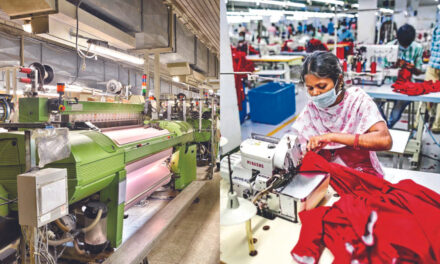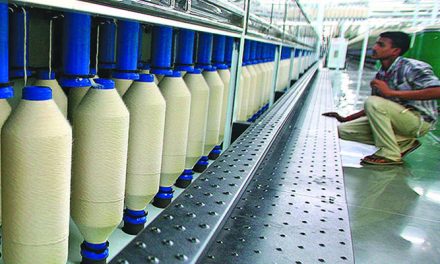
Textile sector is among the largest contributors to India’s exports with 13 per cent of total exports. The year 2017 turned out to be a mixed bag for the textiles sector. In November, the Textiles Ministry notified post-GST rates under the scheme for Remission of State Levies (RoSL) on exports of readymade garments & madeups. For garments, the rates range between 1.25 per cent and 1.70 per cent and for made-ups between 1.40 per cent and 2.20 per cent effective from October. The government also enhanced the rates under Merchandise Exports from India Scheme (MEIS) on readymade garments and made-ups from 2 per cent to 4 per cent. The rates will be applicable between November 1, 2017 and June 30, 2018.
While initiatives were unveiled for power loom units and weavers, the much-awaited new National Textiles Policy is yet to see the light of the day. Towards the end of the year, a Scheme for Capacity Building in Textile Sector to boost skill development and job creation was launched with an outlay of Rs. 1,300 cr. Around 10 lakh people are expected to be skilled and certified in various segments of textile sector.
The year 2018 may turn out to be a challenging year for India’s textile and garment industry, with exporters still reeling under the impact of GST and outward shipments likely to miss the $45 bn target for 2017-18. Garment exporters have sought that the duty reimbursement to them should be retained at the pre-GST drawback rates of 7.5 per cent, amid declining exports. Currently, the drawback rates are 2-2.5 per cent.
India’s apparel exports declined 39 per cent in value terms in October. A comprehensive national policy covering all segments of the textiles sector is the need of the hour, to give a push to exports from the sector, which have remained stagnant for the past four fiscal years, mainly because of less demand in major markets such as the US, the EU and China, and stiff competition from countries like Vietnam and Bangladesh, which enjoy an edge over India.
Hence, the textile and clothing industry has lot of expectation and have sought tax and labour reforms by the Government in Union Budget 2018-19. A comprehensive national policy covering all segments of the textiles industry can give a push to exports. A scheme of capacity building can boost skill development and job creation. Further, an interest equalization of 3 per cent in respect of yarn exports in order to make domestic product competitive in international market for boosting yarn exports. It has also sought exemption from payment of GST on exports, reduction in GST rates from 18 per cent to 12 per cent on manmade fibre and sufficient provision for Technology Upgradation Fund Scheme in Union Budget 2018-19.

















